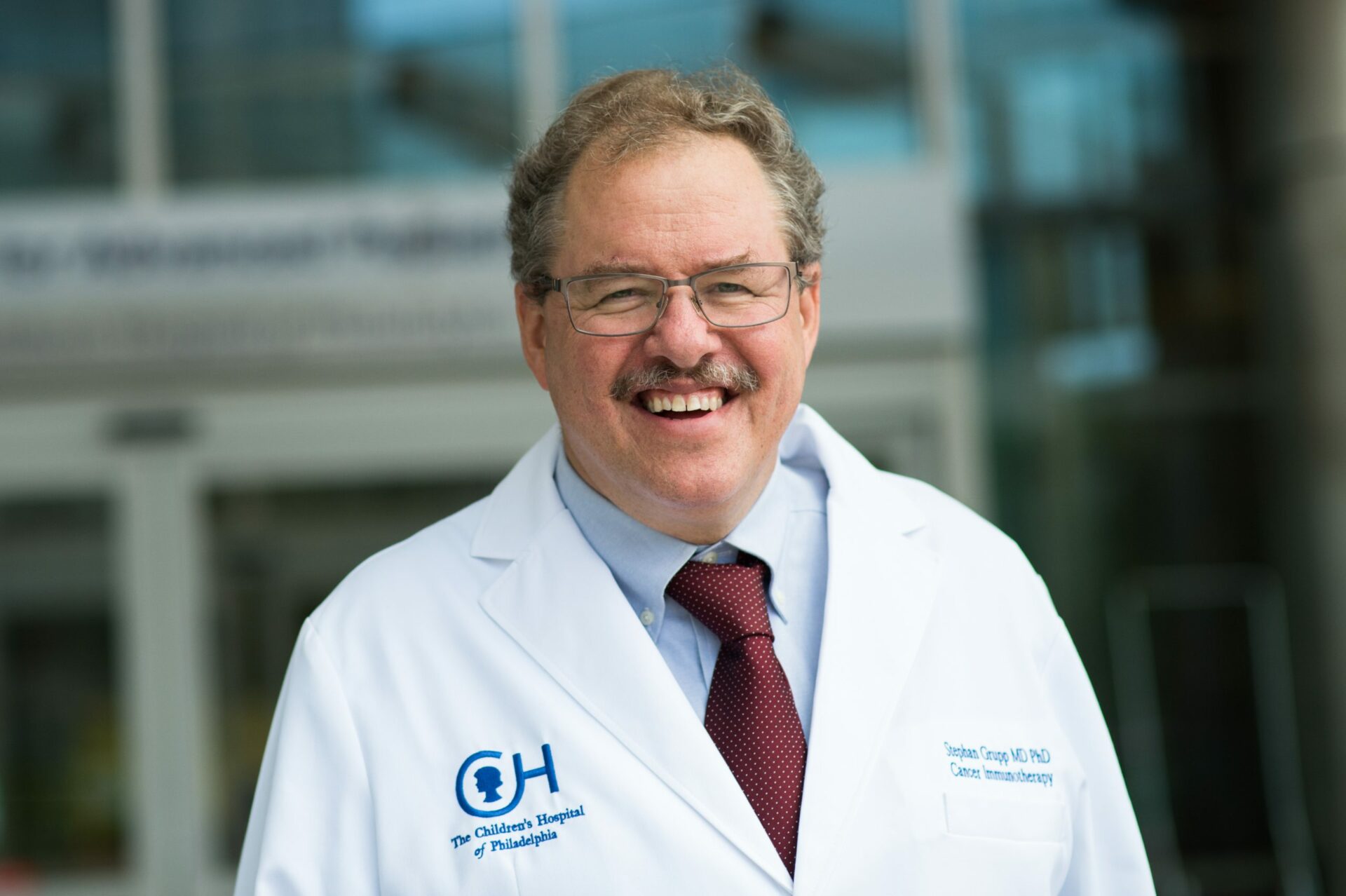B-cell acute lymphoblastic leukemia (B-ALL) is the most common cancer in kids. The good news is that available therapies are highly successful in taking on the disease. Chemotherapy drives the cancer away for most children, and for those who relapse, an immunotherapy called CAR-T cell therapy is successful 90% of the time. Sounds like a victory worth celebrating, right?
It’s an astonishing achievement, but as we know far too well, cancer cells are smart. They are constantly bobbing and weaving to avoid detection. Despite the promise of immunotherapies, which teach a patient’s own immune cells to recognize and destroy cancer cells, in some cases cancer appears to be getting the upper hand. In more than 20% of patients receiving CAR-T cell therapy for B-ALL, cancer cells are learning to hide the particular protein that this treatment searches for, called CD-19. This allows the cancer to duck the punch and fight another round.
 Fortunately, kids with B-ALL have Stephan Grupp, M.D., Ph.D., of the Children’s Hospital of Philadelphia in their corner. Grupp and his team are developing a new targeted therapy to outwit treatment-resistant leukemia cells.
Fortunately, kids with B-ALL have Stephan Grupp, M.D., Ph.D., of the Children’s Hospital of Philadelphia in their corner. Grupp and his team are developing a new targeted therapy to outwit treatment-resistant leukemia cells.
“Often when the patients relapse, that CD-19 target that was on your leukemia cell is no longer there,” said Grupp. “That’s how the leukemia cell dodges the CAR-T cell therapy. We’ve been really focused on trying to fix that problem.”
Their approach? Choose another target. Grupp and his team analyzed cancer cells from patients who experienced relapses after receiving CD-19 targeted therapy, searching for something they could target that most patients had in common. Ultimately, they zeroed in on a protein called CD-22.
“We’ve now developed a second CAR treatment that recognizes CD-22, so we now have separate therapies that can target both CD-19 and CD-22,” said Grupp. “With the V Foundation’s help, we were able to run a clinical trial and it seems to work very well. At least 70% of the patients who initially experienced relapse go back into remission after receiving the CD-22 directed therapy.”
Their hope is that they can continue to decrease the relapse rate in these patients as they fine-tune the targeted therapies that work best. Dual targeting may be an important next step. The success of immunotherapies in cancers like B-ALL, and other blood cancers, gives Grupp hope these treatments can eventually be adopted across the cancer spectrum.
While it’s frustrating to have to get back into the ring after you thought the fight was over, the truth is there is no magic bullet that solves every problem. Even when a breakthrough proves successful, cancer often finds a way to change the game. But with your help, scientists like Grupp are there to meet the challenge, search for a new weakness and find the next breakthrough. It may feel like a small step, but every small step leads to more lives saved.




